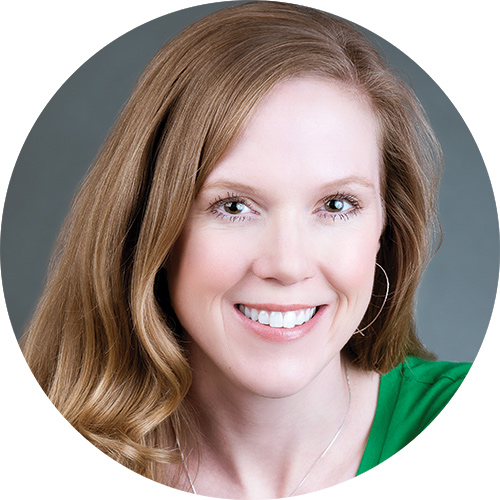I would never have recovered from my eating disorder without my weekly therapy group. The women and men in this group inspired me more than anything else. If they could get better, then maybe, just maybe, I could too. Others in recovery made healing seem like a real possibility.
In addition to peer support, three powerful keys that supported my recovery efforts and helped me to overcome my eating disorder were:
- Learning how to separate the eating disorder from myself
- Letting go of ALL of my eating disorder
- Channeling my genetic traits in a positive direction
1. Separating the Eating Disorder from Myself
In therapy, I learned to treat my eating disorder like a relationship—rather than an illness or a condition. I actually named my eating disorder, “Ed,” which is obviously an acronym. Ed was like an abusive boyfriend or husband. I hated him, but, for so long, I could not leave.
This method of personifying Ed helped me to view my eating disorder as separate from myself. I could finally talk back to Ed and make room for my own thoughts and opinions. By connecting with my true self in this way, I gained some hope that I could recover.
I have heard that the metaphor of Ed helps many people to feel this same hope. For that, I am deeply grateful. By using the metaphor, my friends and family began to see my eating disorder as separate from me as well. We could all fight against Ed and for me. This felt good.
2. Fully Letting Go to Find Healing
One big turning point in my journey was when I came to terms with the fact that recovery meant not only getting rid of the parts of the eating disorder that I hated (e.g., feeling out of control when binge eating, depression), but it also meant giving up those parts that I liked (e.g., feeling in control when restricting, a sense of being unique).
I discovered that I couldn’t hold onto any of Ed (a little restricting hurts a lot). To heal, I had to let go of all of Ed. This meant grieving the good. In the end, I found other ways—better ways—to navigate life. Of course, I needed the help of an expert treatment team to do all of this.
3. Using Genetic Traits to My Advantage
I was not born with an eating disorder, but I was born with traits that made me vulnerable. Constantly striving to be perfect certainly made me more vulnerable to having an eating disorder. So did other genetic traits like high anxiety and obsessive-compulsiveness.
I was not born with an eating disorder, but I was born with traits that made me vulnerable.
However, when channeled in a positive direction, these traits played a crucial role in my recovery. I was able to refine perfectionism, for instance, and apply it to things like attending doctors’ appointments and finishing therapy assignments. As I wrote about in my second book, Goodbye Ed, Hello Me, when taken to the light, our genetic traits absolutely support recovery.
All in all, no one is born with an eating disorder. We are born with beautiful traits that can actually serve us in life. And, ultimately, full recovery is possible.
You Deserve Healing and Recovery, Too
It is important for people to know that a diagnostic label cannot measure pain and suffering. Sometimes, people with eating disorders that don’t fit neatly into the boxes of anorexia nervosa, bulimia nervosa, or binge eating disorder don’t feel like they deserve help. And yet, research shows that eating disorders that don’t meet full criteria can be just as severe or even more so. I collaborated with Harvard Medical School to write a book, Almost Anorexic, all about this topic. It is that important.
In the book, Dr. Jennifer J. Thomas and I talk about not settling for “almost recovered.” Push past mediocre versions of recovery to a complete one.
At The Meadows Ranch, we believe that full recovery is possible and that you have the power to change your story. Connect with us today to learn more about how our caring and compassionate team can help support your healing and guide you on your recovery journey.
If you are interested in attending the Life Without Ed® weekend retreat at the Rio Retreat Center at The Meadows, please click here.
This is an excerpt from an interview Jenni Schaefer did with Dr. Marianne Miller. To read the entire interview, visit Dr. Miller’s blog [https://www.drmariannemiller.com/blog].

About Senior Fellow Jenni Schaefer
Jenni Schaefer graduated summa cum laude from Texas A&M University with a degree in biochemistry, and she knows firsthand the devastating consequences of an eating disorder. Since recovering from her own eating disorder, she has carried her message of self-acceptance and triumph over adversity to the public.
Jenni is the author of several books, including Life Without Ed: How One Woman Declared Independence from Her Eating Disorder and How You Can Too, and she has contributed to anthologies like the Chicken Soup for the Soul series. A sought-after speaker on addiction and food disorders, relationships, depression, and career, Jenni has appeared on Dr. Phil, Dr. Oz, the TODAY show and Entertainment Tonight, as well as in print coverage from Cosmopolitan and The New York Times. She is also a blogger for The Huffington Post, and her work has appeared in Publisher’s Weekly, The Chicago Tribune, Glamour, Shape, The Washington Times, Woman’s World, Seventeen, and more.

